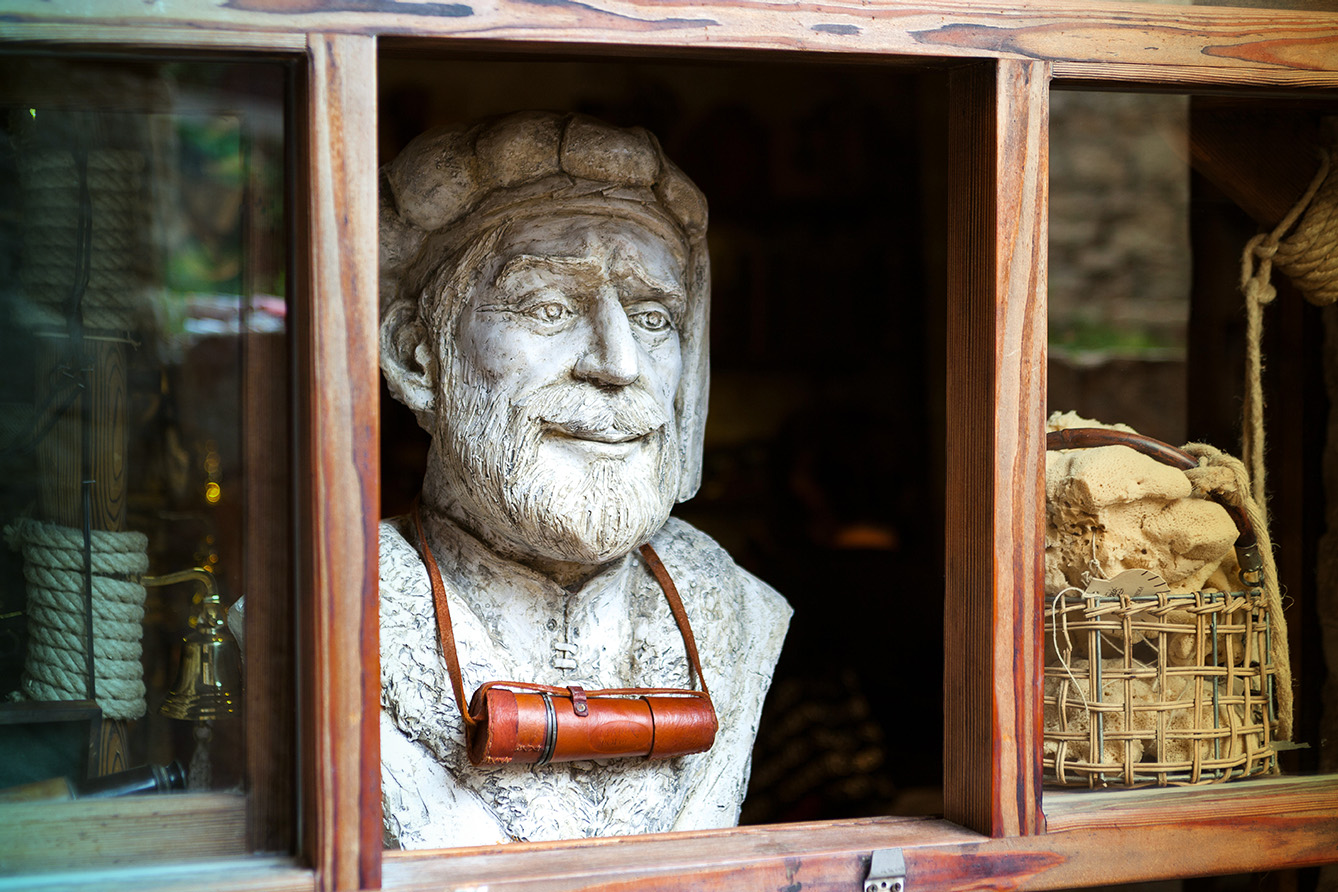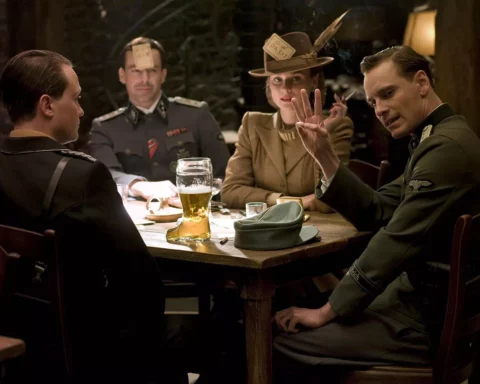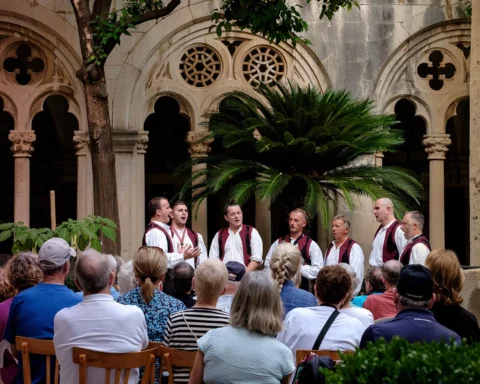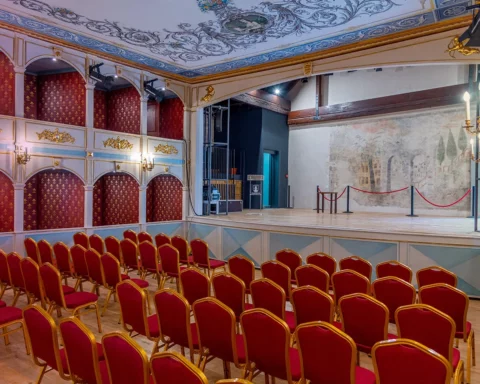In 1298, two Italian city-states, the Venitian Republic and the Republic of Genoa, made another in a series of attempts to conquer their rival in battle. One such battle was a naval one on the Adriatic Sea. Venetians lost, and many of their ships were commandeered and combatants captured. One of those was a man by the name of Marco Polo, a notable Venetian, traveler, and explorer.
Held prisoner of war on the island of Curzola, he soon was transferred to Genoa. There, imprisoned in the Palazzo di San Giorgio, he dictated the adventures of voyage to China – perhaps the best known and most famous tourist account of early Europe.
Marco Polo’s Croatian time
The island where he was kept for these first few days before moving to Genoa is now the Croatian island of Korčula. Warm, with a perfect climate, historic towns, and some 15 thousand inhabitants, it’s one of the greatest tourist destinations in Croatia, which is itself a great tourist destination. But Korčula’s claim to Marco Polo doesn’t end with his prisoner period. In fact, ask an islander, and you’ll hear that the traveler’s family origins lie here, in an eponymous town on the island, or even that he was born on the island.
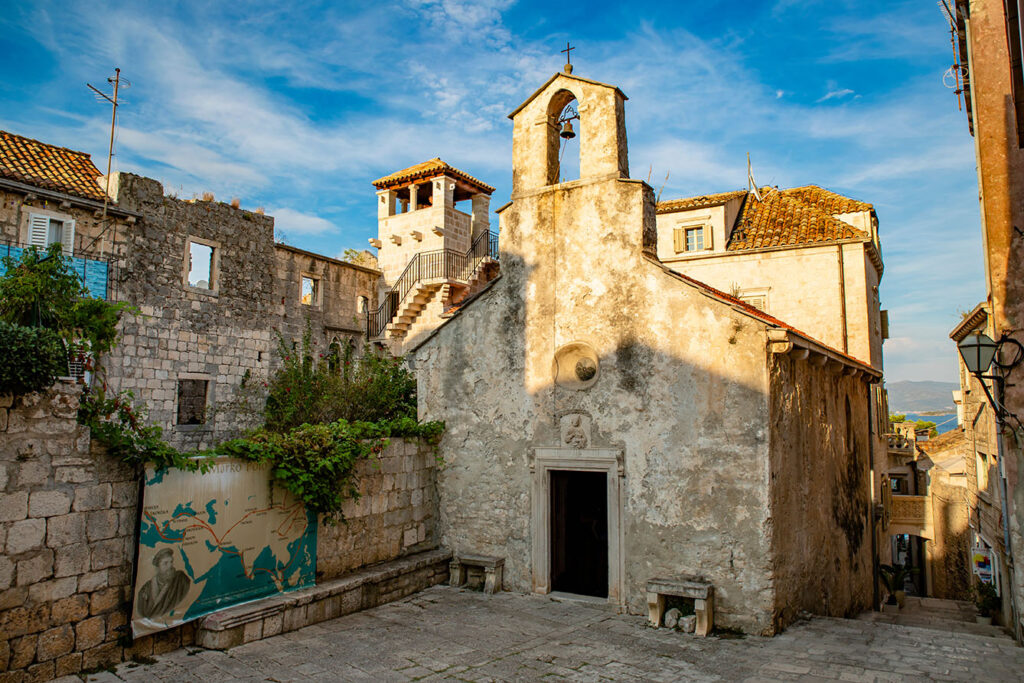
Now, there are some arguments for that, the main one being the presence of the name “Depolo” among islanders. Throughout history, the reasoning goes that the name could be Di Polo, Da Polo, or even Polo itself. And as Curzola was technically part of the city-state of Venice at the time, Marco Polo would have been Venetian-born even if he had been in Korčula.
The Venetian Polo
Although arguments for Korčula as a famous explorer’s birthplace are dubious, some historians still insist on the Croatian origins of at least one of his great-grandfathers of the same name. But then again, the last name Polo has been present in the city of Venice since at least the late 10th century.
The myth of the Marco Polo island in Croatia gained traction when the country became more interested in scaling tourism after World War I. One researcher mentions travel guides of the era that directly pointed to one particular house owned by the Depolo family as the birthplace of the explorer. This is how the myth became “the truth.” When ethnographers asked islanders about their heritage in 2008-2009, the name “Marco Polo” was the most common thing mentioned. And the House of Marco Polo, as it is known, is now in possession of local authorities who plan to turn it into a museum.
The Korčulan roots of Marco Polo seem to be an example of so-called invented tradition. But that may be even better as it goes well with the colorful adventures of Marco Polo in China, which were, to a large extent, invented as well – in a Genoan prison.


